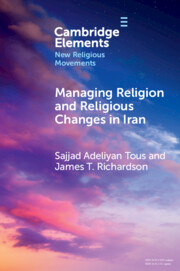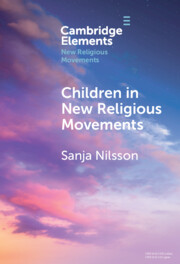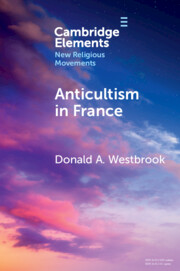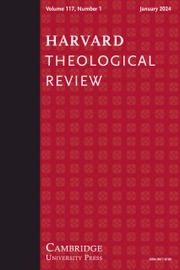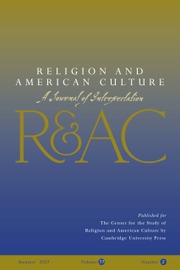Managing Religion and Religious Changes in Iran
This Element offers a theoretically informed examination of the manner in which religion, especially alternative and emergent religious and spiritual movements, is managed by law and legal mechanisms in the authoritarian theocracy of Iran. It highlights how these phenomena have been affected by the intersection of law, politics, and Shiʿi theology in recent Iranian history. The growing interest of Iranian citizens in new religious movements and spiritual currents, fostered by the cultural diffusion of Western writings and ideas, is described. The development of religious diversity in Iran and a corresponding loss of commitment toward some Islamic doctrines and practices are of considerable concern to both the Iranian religious and political establishments. This has led to social control efforts over any religious and spiritual movement differing from the regime's view of Islam. Those efforts, supported in large part by Western anticult ideas, culminated in the passage of a piece of stringent legislation in 2021. The Element closes with applications of theorizing from the sociology of law and of religion.
Reviews & endorsements
‘Though it is a brief treatment of the topic, it covers a range of issues from ideology to sociological setting to legal theory. It is important reading for anyone wishing to understand the status of religious freedom in Iran, but also for scholars engaging in comparative studies of religious regulation in authoritarian contexts.’ Ani Sarkissian, Asian Journal of Law and Society
‘Tous and Richardson present their readership with cutting-edge cover-age of religion in the Islamic Republic of Iran (IRI). The book provides astute analysis on the question of religious freedom through evidenced-based theory … It provides critical analysis on religion in the IRI and is suited to colleagues in the social and political sciences, and humanities.’ Milad Milani, Journal for the Academic Study of Religion
‘Tous and Richardson provide an analysis of the anatomy of Iran as a repressive theocracy. Their critical inquiry provides an overview of many of the legal developments in contemporary Iran that they describe in terms of two juridical developments namely ‘judicialization’ and ‘de-judicialization’.’ Bryan S. Turner, Critical Research on Religion
‘Managing Religion and Religious Changes in Iran is an important work that offers valuable insights into the complexities of religious governance in the Islamic Republic. Tous and Richardson succeed in elucidating the intricate relationship between law, religion, and politics in contemporary Iran, making the book an essential read for scholars in Iranian studies, especially those interested in sociology and law … The interdisciplinary approach of the authors is one of the book’s strengths. By integrating law, sociology, and theology, the book provides an in-depth and comprehensive analysis of the management of religion in Iran. Adding to its strength is empirical data, including interviews and case studies, establishing the credibility of the analyses.’ Mahin Siddiqui, Contemporary Review of the Middle East
‘The current Element is a most interesting collaboration between a talented graduate student, whose academic work shows great promise, and a seasoned, well-respected, and well published professor emeritus … The most salient and useful feature of this short book is its rich and multifaceted theoretical discussion … Not only is Managing Religion and Religious Changes in Iran: A Socio-Legal Analysis a welcome methodological contribution by virtue of its exemplary sociology of law framework of analysis (and review of the relevant academic literature), but also (and especially) for its merits as a model of the collaborative potential of senior scholars working with promising graduate students, as is the case here.’ Christopher Buck, Alternative Spirituality and Religion Review
‘In Managing Religion and Religious Changes in Iran, Sajjad Adeliyan Tous and James T. Richardson provide a detailed analysis of the evolving ways in which the Iranian judiciary has responded to the presence of religions seen as threats to Iran’s identity as an Islamic Republic … Dense in legal and historical detail, it reveals important insights into how new religious movements test the limits of tolerance.’ Brian C. Wilson, Nova Religio: The Journal of Alternative and Emergent Religions
'Why have Iranians increasingly been rejecting the official Islam propagated by the state and turned to New Age ideas and movements? How have the authorities reacted to this trend? How can the sociology of religion and law help illuminate this phenomenon? This [Element] provides a theoretically informed analysis of how religion, particularly alternative and emerging religious and spiritual movements, is regulated by law in the Islamic Republic of Iran ... The [Element] covers a lot of ground for such a short text and throws considerable light on the ongoing dialectic of religion and law in modern Iran.' Hadi Enayat, Religious Studies Review
Product details
September 2024Adobe eBook Reader
9781009460088
0 pages
This ISBN is for an eBook version which is distributed on our behalf by a third party.
Table of Contents
- Introduction and relevant background
- 1. Religion and religious freedom in Iran's post-revolutionary constitution
- 2. Religious freedom status of minority religious groups in Iran: an overview
- 3. Religious life, cultural diffusion, and religious pluralism in Iran
- 4. Social control of new religious movements in Iran: a chronology and analysis
- 5. Conclusions, relevant sociological theories and theoretical applications
- References.

